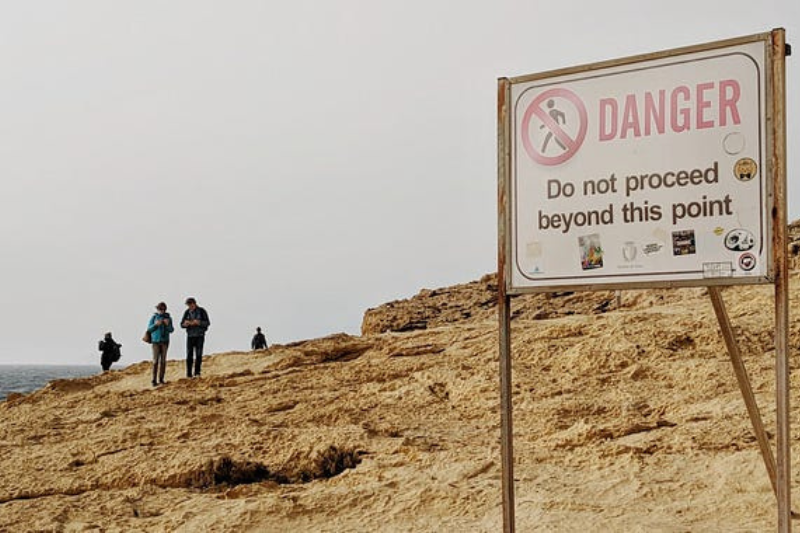Early-stage fundraising takes a toll. A successful raise often requires months of preparation, pitching, and negotiating. You must craft a story, answer questions, prepare materials, and defend a financial plan. Then you get the pleasure of repeating yourself endlessly, often to investors only casually curious about your life’s mission.
It’s exhausting — and worse, it often ends in failure.
But for the fortunate minority who do raise the capital they desire, another danger lurks. It’s the honeymoon period.
I’ve seen it many times. Over the past three years, we’ve guided more than 100 fundraises. A distinct pattern exists:
Month 1: The founder prepares for the raise.
(optimism abounds)
Month 2: Calendar is packed with pitches and follow up discussions.
(nervous excitement)
Month 3: Business diligence is in full swing.
(regular fits of terror and rage seasoned by occasional tears)
Month 4: Partner meeting presentations and first term sheets
(heart palpitations)
Month 5: Term sheet is signed and legal diligence commences
(vital signs stable)
Month 6: Funds are wired
(euphoria)
But at this point in the process, even in the midst of euphoria, a new problem emerges. It’s called PFSD.
PFSD (Post Fundraise Speed Disorder)
A sinister malady afflicts most first-time founders. The disease spreads via wire transfers and cashier’s checks. The illness presents itself in predictable ways…
- Capital hits the bank account.
- Founders feel enormous relief.
- Founders were not entirely sure where first to put their attention.
- Founders take it a little easy on themselves and their team.
- Founders debate immediate goals and recruiting needs.
- Founders begin to realize recruiting is hard; most, if not all, hiring is off target.
- The first post-funding board meeting approaches.
- The founder revisits capital planning and milestone achievement.
- Founder realizes 1) they did not raise enough capital, 2) they are way behind on hiring, 3) they are far off of the plan originally shown to investors, and 4) they feel broke. (again)
- Panic.
Does anyone out there have this experience? You close capital, and yet only minutes later, it feels like you’re already in danger of being hopelessly off schedule.
You’re not alone.
It’s only natural to take a breath following the pressure of an early-stage capital raise. But if that moment of relaxation lingers too long, it will flow into the rest of the company, and you might find yourself dangerously off schedule.
Every capital raise has a goal. Are you raising to grow and reach the next fundraising threshold? Are you raising to sell? Or perhaps you’re raising capital to reach profitability? Whatever the case, chances are the moment you raise the current round; the timer will begin on the next one. And the first ticks off the clock are precious.
So how does a founder inoculate themselves against PFSD? There is a treatment plan, and it involves three simple steps.
1. Prep for the next milestone before you’ve even finished the first.
In the US, a signed venture capital term sheet is highly likely to result in closed financing. That means once the term sheet is signed, it’s time to parallel the path. Founders, of course, need to chaperone the lawyers to make sure the final steps are completed, but it’s equally critical that they zoom out. That means if you just raised Series A, then research Series B metrics and begin setting goals with your leadership team.
“If you just raised Series A, then research Series B metrics and begin setting goals with your leadership team.”
2. Practice radical (financial) candor.
Three to six months earlier, you built an elegant Excel model. It was an important component of your fundraise,r and it survived investor scrutiny. But now it’s obsolete. Startups operate in dog years; mere months and your financial projections likely require material adjustment. Be clear with yourself and your team about what has changed, and circulate a new and improved forecast.
“Startups operate in dog years; mere months, and your financial projections likely require material adjustment.”
3. Redirect energy towards recruiting.
The first truth of recruiting: You’re always behind in recruiting. But don’t just passively accept it. Fight like hell. The biggest expense for a young startup is people. You have a hiring plan (you could not have revised your financial model without one), and now you need a sourcing one (aka how to find the talent). You once pitched investor after investor on your plans to build out your team. Now it’s time to fill all of that empty space.
“First truth of recruiting: You’re always behind in recruiting.”
A startup is a marathon at a sprinter’s speed (but without utterly artificial conditions provided by Britain’s wealthiest man). Fundraisers can be brutally difficult. It takes months of pitching, endless negotiation, and lots of rejection before the right fit is found. It is only natural for the founder to want to recover before returning to the grind. So plan a short vacation in advance, or give yourself an evening, have a nice meal, grab a drink, and maybe even sleep a full 8 hours. But then get back to work 🙂
